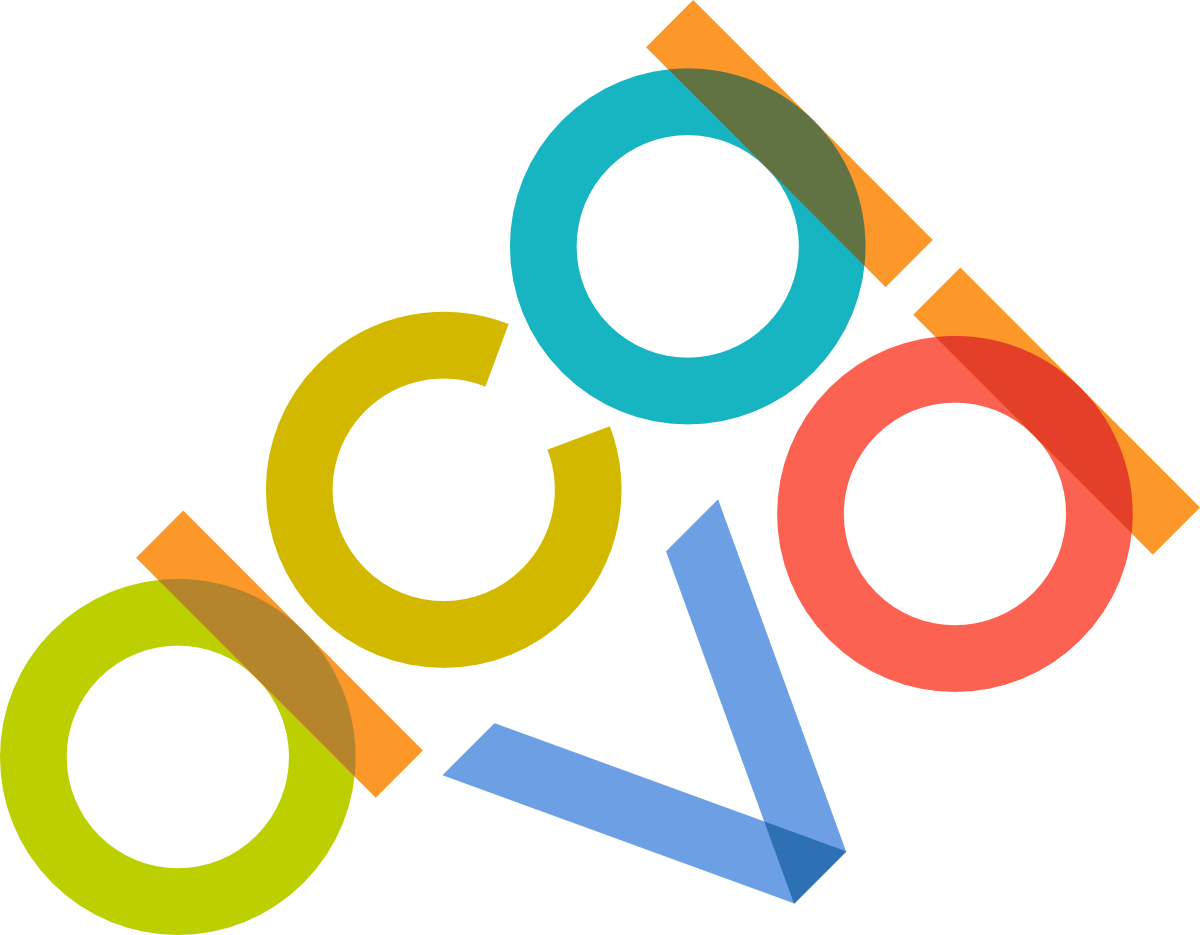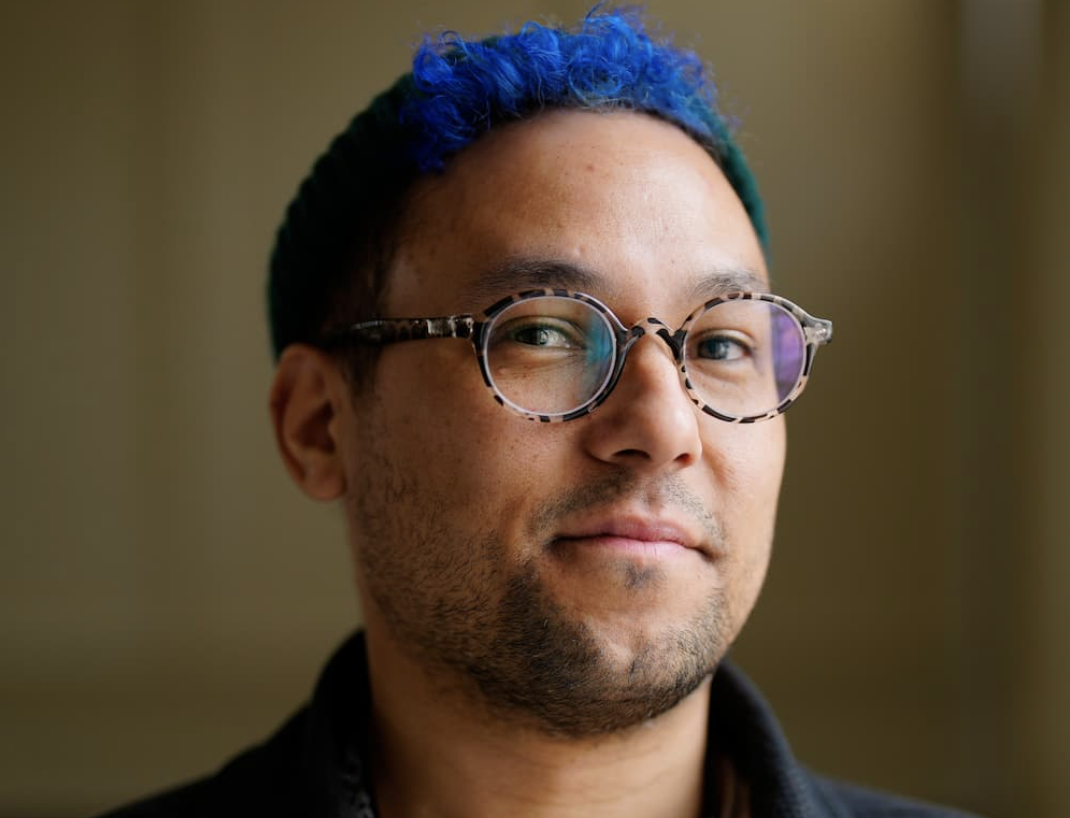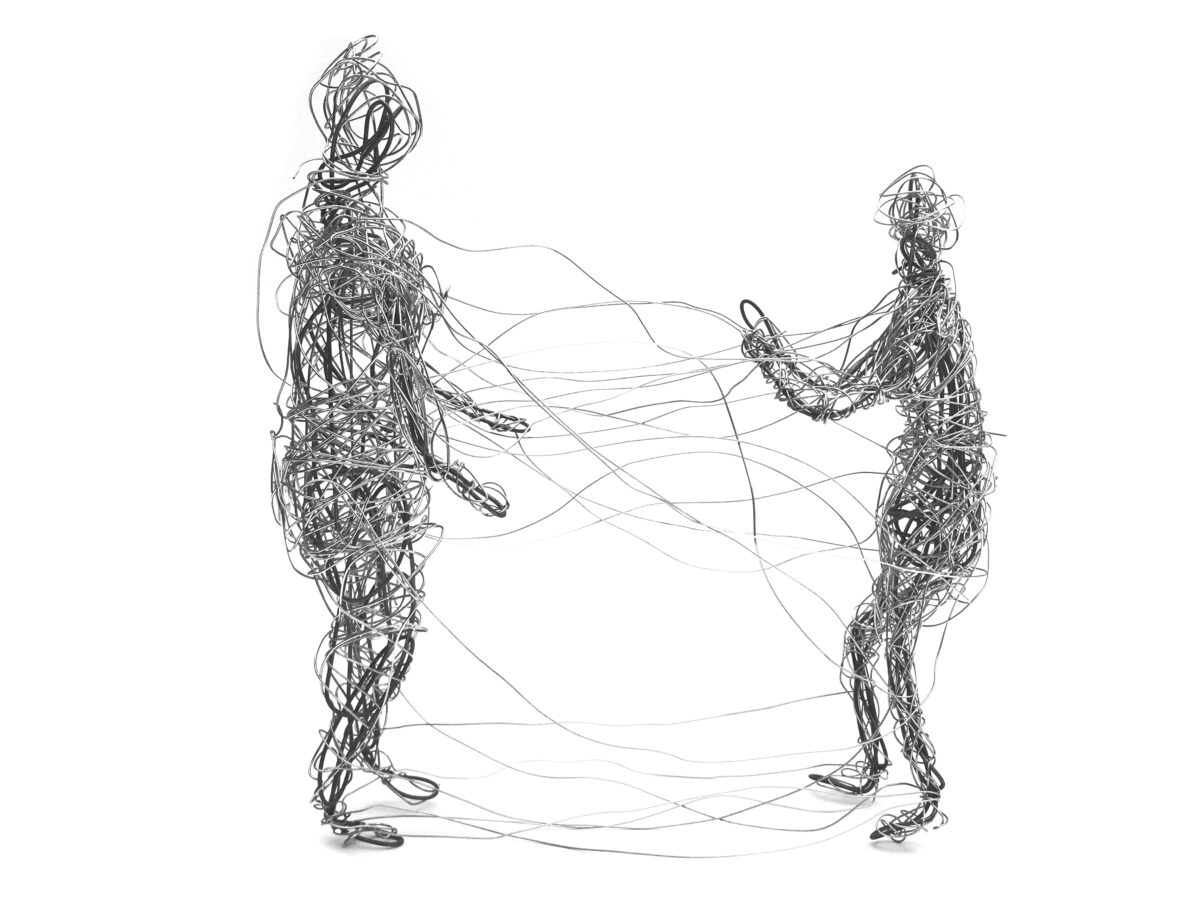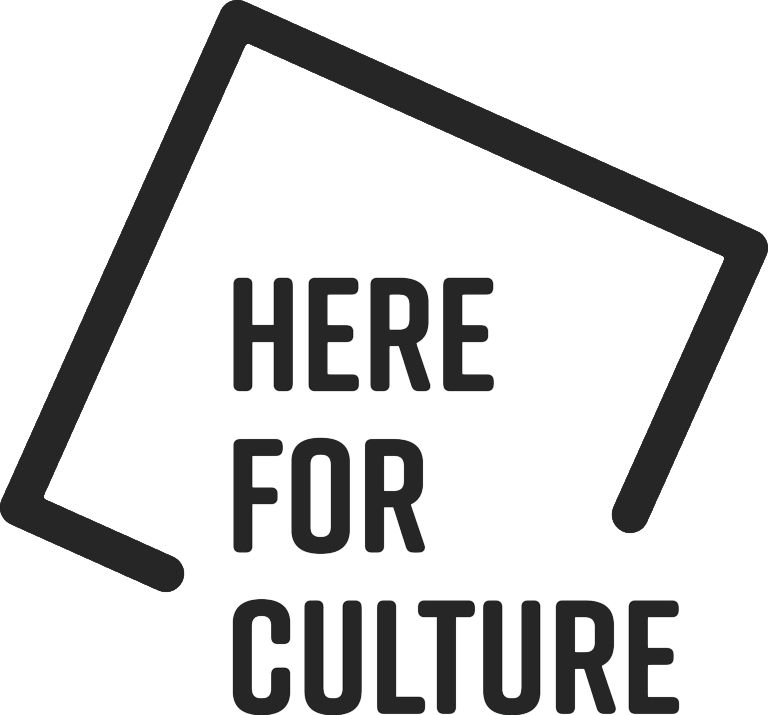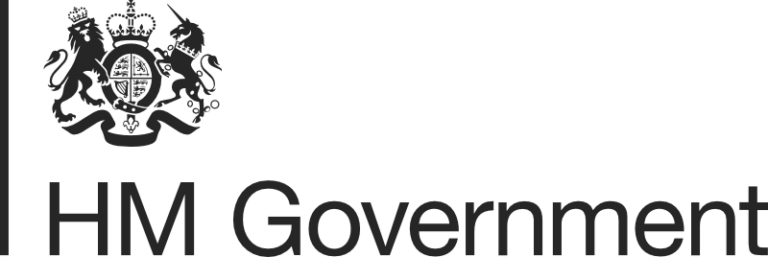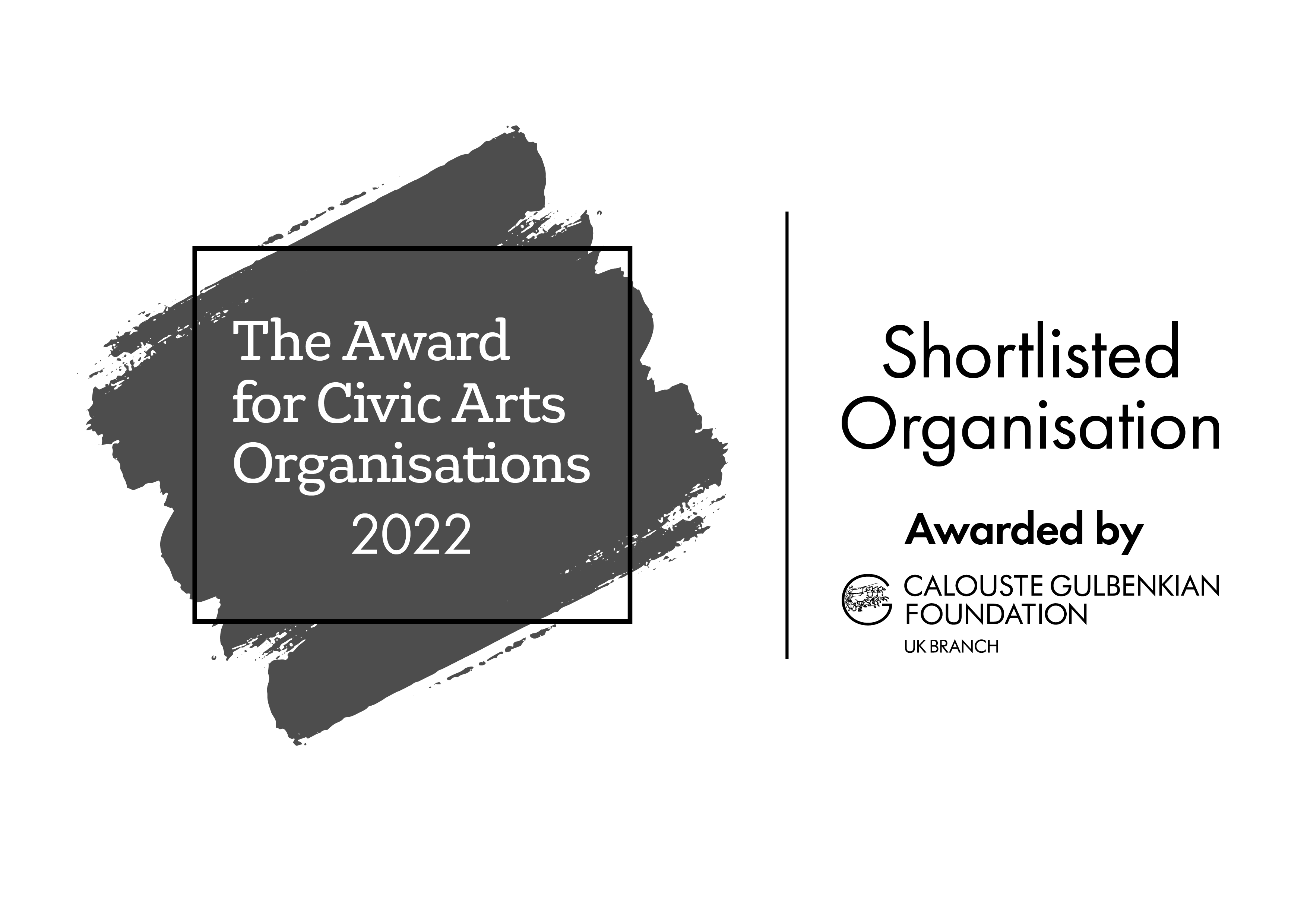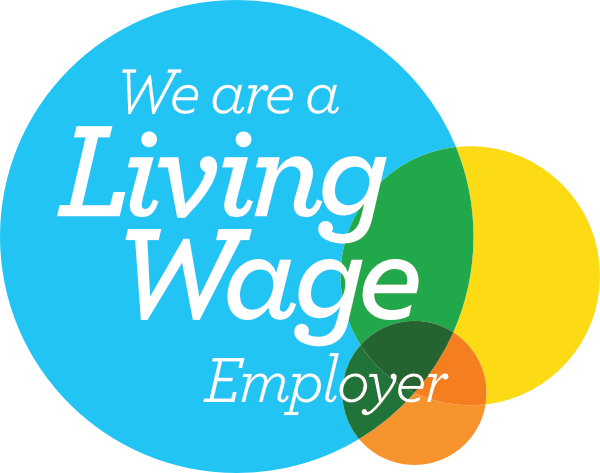
Ahead of her upcoming ACAVA Talk on 20 June, we spoke with Georgia Taylor Aguilar, Curator for Professional Development at ACAVA, to hear more about her experience, values, and what artists can expect from her session on making the most of studio visits.
Studio visits can be energising moments in an artist’s practice, offering support, critical input, and new perspectives. But they can also feel daunting. Georgia’s upcoming talk breaks down what makes a studio visit meaningful, from preparation and confidence-building to creating genuine connections and follow-up.
We caught up with her to talk about her role, curatorial values, and why this subject remains so relevant for artists today.
Part of an ongoing series, members of our artist community share insights about their work, their stories and their relationship to ACAVA. Visit this page to read more.

Can you tell us a little about yourself and your role at ACAVA? What does a “Curator for Professional Development” actually do, day to day?
I support artists by championing the development of their careers and ambitions.
My role includes envisioning and developing new programmes — and crucially, fundraising for them! I lead residencies, curate our talks programme, open studios and partnership events. I also provide bespoke one-to-one support for our studio holders and work responsively to shape our programmes around artists’ priorities and the wider sector. This includes developing content and signposting resources, which you can find here.
You’ve worked with artists and organisations across the UK and internationally. What values guide your curatorial practice? We’ve seen “radical compassion” mentioned. What does that look like in your work?
More than ever, curatorship is about holding space for artists, participants and audiences. In difficult and uncertain times, within our often precarious and opaque sector, it’s essential to be accountable and to work with integrity and generosity.
I refer to radical compassion because I don’t believe we can practice true empathy in a healthy, sustained way if it drains us, or if we risk falling into the hole with someone. Nor do I believe we can ever fully understand each other’s positions, especially if we’re being honest about difference, nuance and complexity in our lived experiences.
Radical compassion, to me, means approaching artists and their practices with care and depth, while maintaining healthy boundaries. It allows me to communicate empathetically, offer perspective, and respect the weight of a situation, without losing clarity or becoming overwhelmed. Through this, I enable myself to do my best work.
“We’re not here to provide all the answers but to guide practitioners in finding their own”
Georgia Taylor Aguilar
What is ACAVA Talks all about, in your own words? Who is it for, and what kind of space are you hoping it creates for artists?
ACAVA Talks is a space designed to affirm, challenge and grow confidence in artists’ journeys.
Ironically, we’re not here to provide all the answers, but to guide practitioners in finding the right options for them.
Too often, arts workers have the answer primed before artists have even asked the question. I find that approach unimaginative and reductive. This programme has been developed in direct response to artists’ questions and thoughts about what’s most useful for professional development.
Why did you want to create a session specifically about studio visits? Where did the idea for this talk come from?
This session is a more refined version of a talk I gave in my previous role as Exhibitions & Artist Development Curator at The Tetley, Leeds (now Yorkshire Contemporary). It was so popular, and it revealed that studio visits weren’t something artists had necessarily considered as worth practicing.
Since joining ACAVA, I’ve had many studio visits and have been continually surprised and excited by how differently each artist approaches them. I’ve also learned a lot about what works and what doesn’t, and about how to tailor the visit to what you need, while also making the most of your guest’s expertise.
Studio visits are a key tool for growing opportunities. And yet, many artists don’t get the chance to develop or rehearse how they approach them. There’s so much untapped potential in simply practicing how to use a studio visit well.

You work closely with over 400 artists across ACAVA’s studio buildings. What do you find artists are most often looking for in terms of support?
It’s impossible to work closely with all 400! But my aim is to understand artists’ needs as well as I can, by saying yes to in-person and online studio visits wherever possible.
Our studio holders are incredibly diverse in practice, ambition and identity. We have contemporary sculptors working internationally, costume designers, editorial fashion photographers, and those who identify as makers, practitioners or hobbyists instead. Benedict Anderson’s Imagined Communities comes to mind here: each artist is part of a shared yet distinct network.
It’s an ongoing (and fulfilling) challenge to respond meaningfully to as many artists as possible, while ensuring nobody feels overlooked.
In terms of support, it’s a mixed bag, but most often, artists are looking for spaces to exhibit and opportunities for (paid!) shows or commissions.
Sometimes, though, an artist might say they’re looking for X when, based on their history, current work and goals, I clearly see and will gently suggest considering Y instead. Hence the value of external viewpoints that come from studio visits.
Here, I also call on our brilliant ACAVA team, a wealth of knowledge and hunches from many artists ourselves, and those in our tech team who also have regular contact with our studio holders. Our hive mind is actually how our Warm Spaces Toolkit emerged.
The title of your session is How to Work a Studio Visit. What does that mean, and why now? Why is this a timely topic for artists?
I suppose it’s timely because it’s timeless!
Artist studio visits, where individuals are invited into an artist’s workspace, have evolved over centuries. From Renaissance apprenticeships to 17th-century patrons, from the romantic fascination of the 19th-century studio to the performative and discursive spaces of modernism and “post-studio” practices, they’ve always been about process, dialogue and connection.
Studio visits offer artists the chance to reflect, share, and invite meaningful input. They’re a tool for career development, creative exploration and visibility.
That’s why knowing how to work a studio visit is so important: it’s a timeless skill, as essential as mastering a new material or refining your technique.

Studio visits can be exciting but also intimidating. What’s one thing artists often misunderstand about them?
They can definitely be anxiety-inducing, especially when the stakes feel high.
One common misconception is that your ideas need to be fully formed and perfectly articulated.
Another is that you need to push the hard sell, which can feel overbearing or disingenuous.
If you could give one piece of advice to someone preparing for their first-ever studio visit, what would it be?
Preparation is the key. This ranges from research, selecting works to show, key themes to cover, questions to discuss, preparing your space and more!

Finish this sentence: “A great studio visit should…”
…feel like a professional hug or a dance; balanced work between you and feel smooth, easy-going and effortless
…leave you buzzing, motivated and with more questions and leads for your practice compared with how you started.
Without giving too much away, what’s one thing you hope attendees leave your session feeling or thinking?
I hope everyone leaves with a renewed sense of hope about what a studio visit can do for their practice.
Whether you’re starting, restarting or refining how you do them, I hope attendees leave with new skills, sharper focus and the renewed motivation to begin again.

About the Talk
ACAVA Talks: How to Work a Studio Visit with Georgia Taylor Aguilar
Friday 20 June 2025
11am–12.30pm
Online (Zoom)
Tickets
Standard: £5 | Concession: £1 | Free for ACAVA studio holders
All attendees will receive access to a recording after the event.
Book your place
This event is part of ACAVA Talks, our professional development programme for creative practitioners, generously supported by Smartist, the visualisation app designed for artists.
We hope to see you at the talk. Whether you’re looking to get started or deepen your approach to studio visits, this session offers space to reflect, reframe, and take practical next steps.
You can find more about Georgia’s curatorial work and interests on Instagram: georgiatayloraguilar
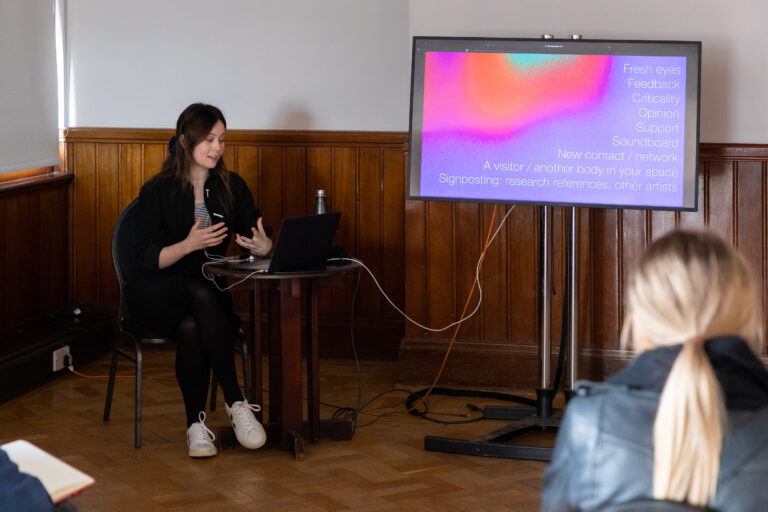
Studio Visits with Georgia Taylor Aguilar
Part of ACAVA Talks: Join Georgia Taylor Aguilar online on Friday 20 June, 11am–12.30pm for strategies on approaching studio visits with clarity, intention, and confidence.
